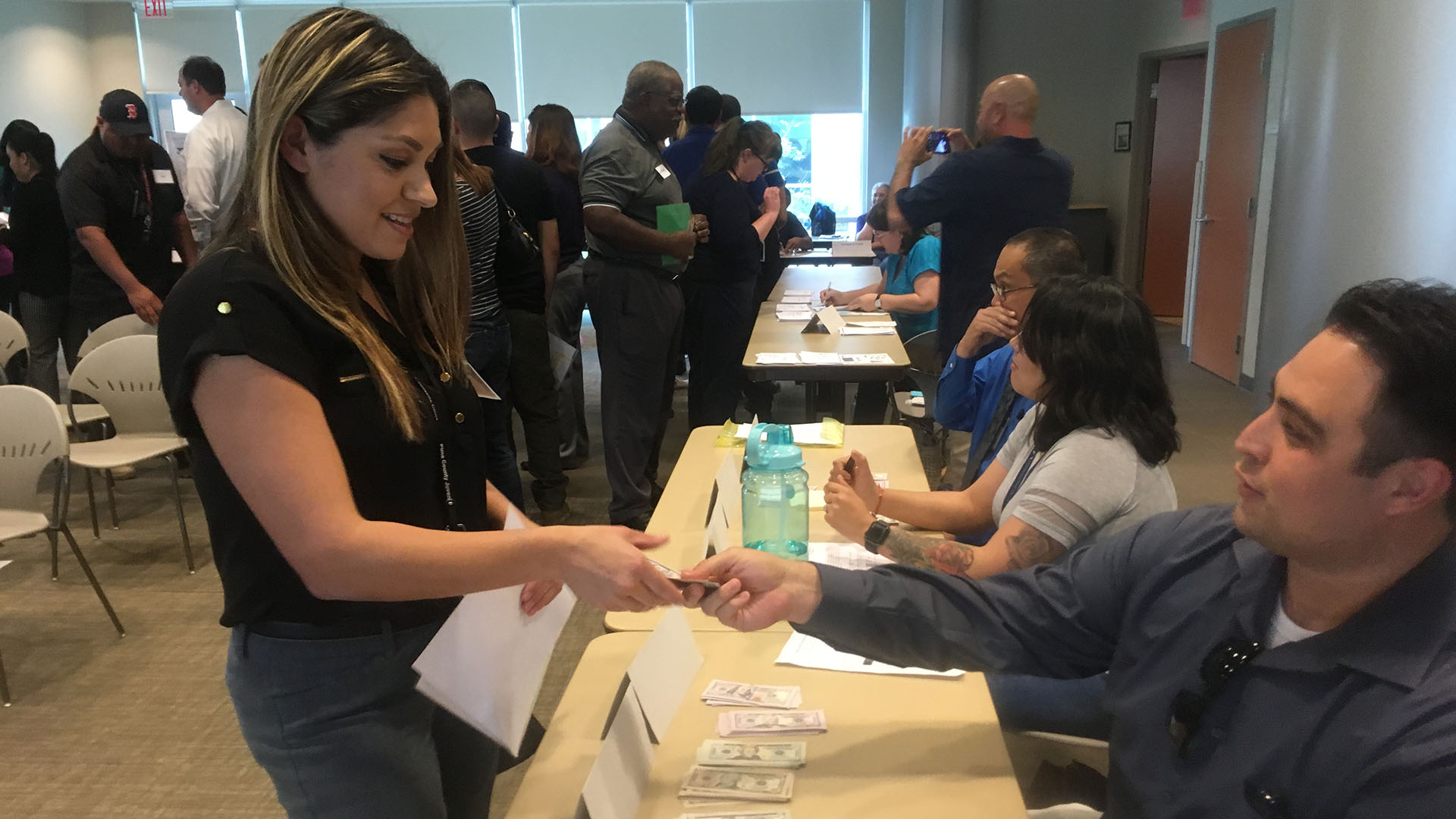 Bethany Maldonado receiving $40 for her $100 laptop from the pawn shop owner, played by Matt Pate.
Bethany Maldonado receiving $40 for her $100 laptop from the pawn shop owner, played by Matt Pate.
The Pima County Criminal Justice Reform Unit on Tuesday partnered with other departments to invite employees from various state, county, local and tribal agencies to experience what it's like to face the challenges that accompany re-entering society.
In real life, the participants work with people recently released from prison carrying out roles in courts or offices like probation or parole. But on Monday afternoon, they were the offenders trying not to go back to prison.
Bethany Maldonado works in the Pima County Juvenile Court in probation.
"Today, I'm Neal. I served four years in federal prison for internet fraud," said Maldonado.
Unlike many of the characters, Neal didn't have to pay rent because he lived with his parents, had a bachelor's degree in accounting, and didn't have any children.
Shanda Breed, the program services manager in Adult Probation Services within the Arizona Supreme Court, facilitated the event. She said the exercise is supposed to make people feel stressed and force them to make the hard decisions offenders experience in real life.
"They're going to do whatever it takes to go home at night, to feed their own kids, to not go back to jail. If that means absconding or if that means lying to their [probation officer] so they can feed their kids, that's what they're gonna do," said Breed. "We need to recognize this and see how we can make this better for them."
She said she wants to hold these people accountable and make it easier for them to succeed.
Throughout the simulation the participants worked to complete tasks Breed set up during four, 10-minute periods.
The volunteers tried to get state ID cards, buy food and deposit checks — all while still meeting their probation officers and taking drug tests. Maldonado and others became anxious when they couldn't afford to complete their weekly tasks.
"I was sweating. I was nervous. At times I wanted to give up and I felt like maybe just going to prison was — go back — that seemed easier. I think everybody should try out this class," said Maldonado.
In the end, many volunteers expressed a better understanding of the struggles offenders face re-entering society.
After the training session, Maldonado said, "I have more compassion for them now, because it's hard."

By submitting your comments, you hereby give AZPM the right to post your comments and potentially use them in any other form of media operated by this institution.